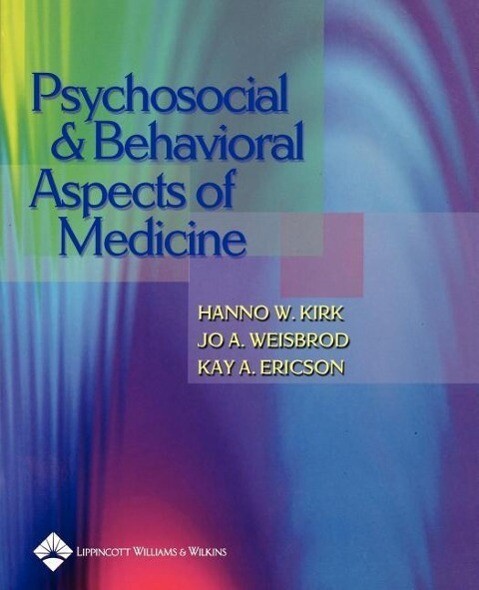
Zustellung: Sa, 26.07. - Fr, 01.08.
Versand in 3-4 Wochen
VersandkostenfreiThis enlightening resource enables health care providers to look beyond physical symptoms to the psychosocial effects of illness on patients for improved provider-patient communication and better clinical outcomes. Readers will learn the impact of patients' attitudes and behaviors in the clinical setting, emphasizing optimal diagnosis and treatment of commonly encountered conditions. Chapters include assessment interviews based in a variety of practice settings, and cover a broad range of topics including basic counseling and communication skills, self-care and stress management strategies, cultural and diversity issues, chemical and behavioral additions, domestic violence, mental disorders, end of life issues, and much more.
Inhaltsverzeichnis
Part I. FOUNDATIONS OF TREATMENT: THE PSYCHOSOCIAL PERSPECTIVE
Chapter 1 What is the Psychosocial Perspective?
Chapter 2 Multiculturalism and Treatment
Chapter 3 Life Span Human Development
Chapter 4 Basic Counseling and Communication Skills
Chapter 5 Sensitization to Prejudice and Discrimination
Chapter 6 Stress Management and Self Care for the Healer
Part II. ADDRESSING SPECIFIC PSYCHOSOCIAL ISSUES IN PRACTICE
Chapter 7 Human Sexuality
Chapter 8 Care Giving and End of Life Issues
Chapter 9 Chemical and Behavioral Addictions
Chapter 10 Domestic Violence
Chapter 11 Child Maltreatment: Abuse and Neglect
Chapter 12 Mental Disorders
Chapter 13 Challenging Patients
Part III. CURRENT PRACTICE CONCERNS
Chapter 14 Sociopolitical and Ethical Issues
Index
Chapter 1 What is the Psychosocial Perspective?
Chapter 2 Multiculturalism and Treatment
Chapter 3 Life Span Human Development
Chapter 4 Basic Counseling and Communication Skills
Chapter 5 Sensitization to Prejudice and Discrimination
Chapter 6 Stress Management and Self Care for the Healer
Part II. ADDRESSING SPECIFIC PSYCHOSOCIAL ISSUES IN PRACTICE
Chapter 7 Human Sexuality
Chapter 8 Care Giving and End of Life Issues
Chapter 9 Chemical and Behavioral Addictions
Chapter 10 Domestic Violence
Chapter 11 Child Maltreatment: Abuse and Neglect
Chapter 12 Mental Disorders
Chapter 13 Challenging Patients
Part III. CURRENT PRACTICE CONCERNS
Chapter 14 Sociopolitical and Ethical Issues
Index
Produktdetails
Erscheinungsdatum
05. September 2000
Sprache
englisch
Seitenanzahl
303
Autor/Autorin
Hanno W Kirk, Jo A Weisbrod, Kay A Ericson
Verlag/Hersteller
Produktart
kartoniert
Gewicht
535 g
Größe (L/B/H)
235/190/14 mm
ISBN
9780781727006
Bewertungen
0 Bewertungen
Es wurden noch keine Bewertungen abgegeben. Schreiben Sie die erste Bewertung zu "Psychosocial & Behavioral Aspects of Medicine" und helfen Sie damit anderen bei der Kaufentscheidung.







